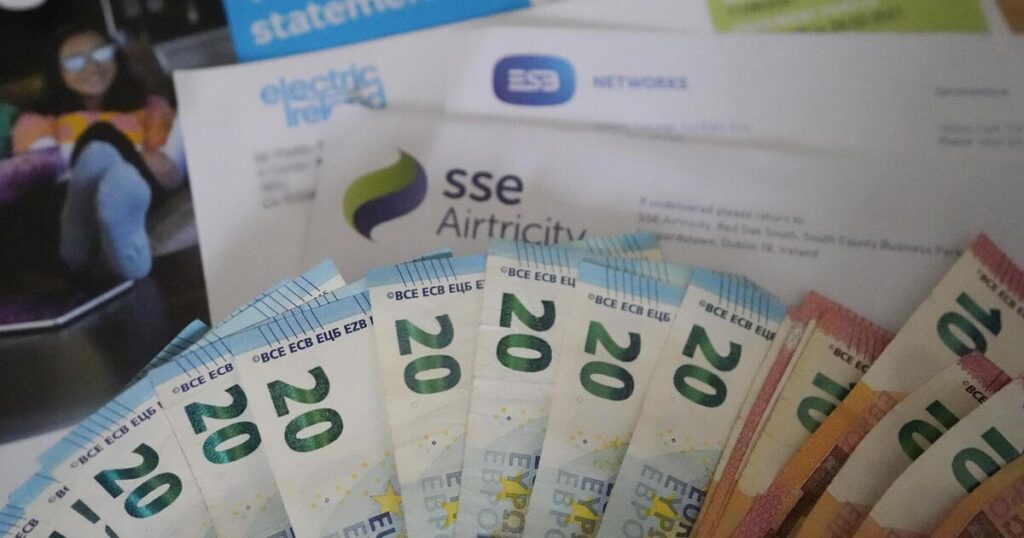The Government has already warned the next budget will be more restrained than previous years, as global economic uncertainty means it will be taking a cautious approach after a giveaway budget ahead of last year’s general election.
Exchequer returns for the first half of 2025 show corporation tax generated €7.4bn last month, up 25% on the same month last year.
The Government pointed out that the overall surplus drops to €1.2bn when the proceeds from the EU Apple Tax case are excluded.
The Coalition’s proposed cautious approach to the next budget comes as households face increased financial challenges.
Food prices are now rising by 4%, more than twice the general inflation rate.
Households also face some of the largest electricity bills in Europe, and mortgage interest rates, while coming down, remain among the highest across the EU.
Defending the decision not to include another cost-of-living package in the next budget to help families cope with soaring prices, Jack Chambers, the public expenditure minister, said the Government is aware of pressures on households but said there are other ways to support people aside from one-off giveaways.
“We need to balance the risks, which are real in terms of the economic context we are in, with the pressing needs that citizens have,” he said.
“Central to the decisions we make in Government would be the improvement of living standards and supporting greater affordability of public services.”
Paschal Donohoe, the finance minister, said he had not anticipated the international volatility around trade rules and US tariffs.
“The way things are settling at the moment means there will be a new normal to come to terms with as global trade is going to look very different,” he said.
Mr Donohoe also warned of a potential future decline in the corporation tax receipts that have helped the economy to record surpluses.
Both ministers emphasised the need for a “careful, sensible, and sustainable” approach to Budget 2026.
The overall amount collected in tax in the first half of the year rose almost 7% to €47.7bn despite fears over the impact of US tariffs.
Total spending was €58.2bn, which included payments of €3bn to the State’s two long-term savings funds: The Future Ireland Fund and the Infrastructure, Climate, and Nature Fund.
During an event last month, Mr Donohoe said that, in the event of an economic downturn, he would make every effort possible to protect capital expenditure, including using the money set aside in these two funds.
In June, €2.9bn was collected in income tax, bringing the total receipts so far this year to €17.4bn — up €700m year on year.
Corporation tax receipts of €7.4bn were collected last month, bringing the total for the year to €14.8bn. However, this drops to €13.1bn when the Apple tax case proceeds are excluded.
This is still €900m higher than last year and “slightly ahead of profile” for this year, according to the Department of Finance.
Vat receipts were also ahead of projections at €11.6bn, which is 5.6% up on the same period last year.
Excise duty receipts during June stood at €500m — up by €100m.
Exchequer debt service expenditure in the year to the end of June was €2.2bn, down by €300m compared to last year.


